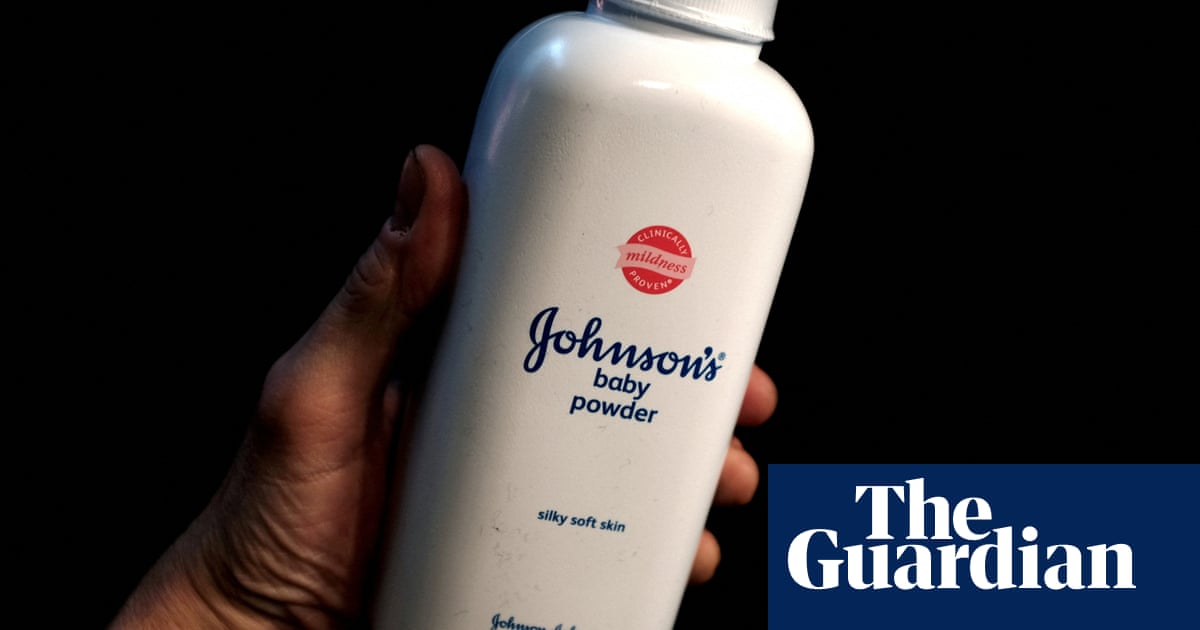
Women’s health groups are calling on Johnson & Johnson’s largest shareholders to force the company to end all sales of its controversial talc-based baby powder and hire an independent firm to conduct a racial justice audit.
The pressure comes after decades of independent science suggested a link between ovarian cancer and baby powder, and the Food and Drug Administration detected cancer-causing asbestos in one lot of the product. Internal company memos show Johnson & Johnson for years marketed it to African American and overweight women and, the groups charge, knew of the asbestos contamination.
Two resolutions to be voted on at the company’s virtual Thursday shareholder meeting include one on directing Johnson & Johnson to stop global sales of talc based baby powder, and one on conducting the racial justice audit. A letter sent to Vanguard, one of Johnson & Johnson’s major shareholders, by an alliance of advocacy groups, led by Black Women for Wellness, states the investment firm has a “moral imperative” to support the proposals.
“Johnson & Johnson has betrayed consumer and investor trust, while violating the rights of millions of individuals by selling asbestos-contaminated talcum baby powder, by intentionally targeting Black women in the marketing of this product, by refusing to admit wrongdoing, and by continuing to sell its talc-based baby powder worldwide,” the letter reads.
Though Johnson & Johnson discontinued US talc-based baby powder sales in 2020 amid mounting public pressure and nearly 38,000 lawsuits, it continues to sell it globally in regions with high populations of people of color.
The American multinational corporation has steadfastly denied that its products contain asbestos and said accusations are based on faulty science. Its attorneys previously urged the Securities and Exchange Commission (SEC) to block the proposals from being voted on because it would affect pending lawsuits across the world. The SEC allowed the vote to proceed.
Talc, considered the world’s softest mineral, is often used by women as a genital antiperspirant and deodorant. The groups charge it is difficult to ensure talc is asbestos-free since they naturally form together, and asbestos-contaminated talc fibers that enter the body are linked to cancer. Many of the lawsuits against Johnson & Johnson have alleged the product caused ovarian cancer.
A division of the World Health Organization began classifying talc powder as “possibly carcinogenic” in 2006, according to reports by Reuters and other outlets, but Johnson & Johnson continued to sell it.
The company recalled 33,000 bottles in October 2019 after the FDA detected chrysotile asbestos in a bottle purchased from an online retailer. It previously said it replaced talc with cornstarch amid slumping sales “fueled by misinformation around the safety of the product”.
“We empathize with anyone suffering from cancer and understand that people are looking for answers,” the company said in a statement to the Guardian. “We believe those answers can be better understood through science – and decades of independent scientific testing by medical experts around the world has confirmed that Johnson’s Baby Powder is safe, does not contain asbestos, and does not cause cancer.”
An internal Johnson & Johnson marketing report leaked in 2006 revealed it was specifically pushing the product to “curvy Ssouthern women 18-49 skewing African American” and in “underdeveloped geographical areas with hot weather, and higher [African American] populations”.
“This could be an opportunity,” a document stated of the product’s popularity with the demographic.
As part of the campaign, it distributed product samples at churches and beauty salons in African American and Hispanic neighborhoods, and partnered with Weight Watchers.
“You can’t get more specific than that and, to be honest, it’s racist,” said Dr Astrid Williams, environmental justice program manager for Black Women for Wellness, which is taking the lead on the plan. She said “racist” marketing continues as the powder is marketed in Asia, Africa and Latin America.
A company spokesperson said the “idea that our company would purposefully and systematically target consumers with bad intentions is unreasonable and completely false.”
“Our products are safe, and our campaigns are multicultural and inclusive,” she added.
The groups’ letter to Vanguard also highlights the financial fallout: Johnson & Johnson has lost or settled lawsuits tallying billions of dollars in damages. Among those is an award of $2bn for 22 plaintiffs who claimed that they suffered from ovarian cancer after using Johnson & Johnson’s baby powder. Williams noted that 11 of those women have since died.
In response, Johnson & Johnson, which has headquarters in New Brunswick, New Jersey, is attempting to shield itself from liability by creating a spinoff company that now houses its baby powder division and has filed for bankruptcy protection. It scored a legal victory in February when a federal judge declined to throw out the case, but it has been appealed to a higher court.
“If their products are safe and there’s no issues, then why are they taking these steps to try to evade and find protections?” Williams asked. “It says that they’re hiding something.”
Vanguard and other investment groups met with Tulipshare, an investment platform that submits proposals on behalf of shareholders.
Public health advocates have turned their attention to shareholders because “nothing else has worked”, said Stacy Malkan, a volunteer and author of Not Just a Pretty Face: The Ugly Side of the Beauty Industry.
“Including science catching up with them, lawsuits from tens of thousands of women and pressure from hundreds of groups over the years,” she said. “They still keep selling talc baby powder, even though safer alternatives are readily available.”
Activists say they’re confident the strategy will succeed.
“There is no excuse for choosing short-term financial gain over the health and wellbeing of women,” the letter reads. “There should be no defense of the racist tactics J&J has used in the marketing and sales of its product. Racism is a public health threat and it is bad for business.”












